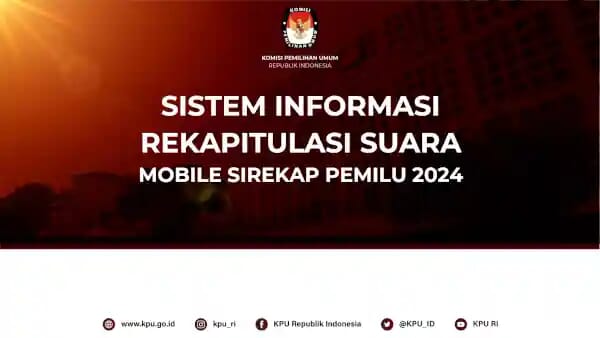In the wake of the 2024 elections, the Sirekap application has emerged as a contentious topic among netizens. Allegations of fraud have been directed towards this real count application used in the electoral process. The controversy stems from reported errors in scanning Form C, leading to instances of vote inflation for various candidates. This article delves into the essence of the Sirekap application, exploring its functionalities, advantages, and the controversy surrounding its alleged misconduct.

Understanding Sirekap Election App 2024:
Sirekap stands for Sistem Informasi Rekapitulasi (Rekapitulation Information System), an application developed by the General Election Commission (KPU) to facilitate public access to the 2024 election results at the Polling Station (TPS) level. Accessible via infopemilu.kpu.go.id or downloadable from the Google Play Store, Sirekap employs Artificial Intelligence (AI) technology to read and translate Form C-Plano results, which contain the vote counts from TPS.
The AI technology utilized includes Optical Character Recognition (OCR) or Optical Mark Recognition (OMR), enabling the recognition of patterns and handwritten text on forms, subsequently transforming them into numerical data.
Advantages of Sirekap:
The utilization of Sirekap brings forth several advantages, including:
- Enhanced transparency and accountability in vote counting results, as the uploaded data represents the primary data at the TPS level, accessible for public monitoring.
- Expedited vote tallying processes, as uploaded data can be immediately received by the KPU server and displayed in tabular and diagrammatic forms.
- Reduction of potential errors and data manipulation, as AI-recognized and translated data cannot be revised.
- Facilitation of public access to vote count information, with displayed data being more comprehensible.
Functions of Sirekap Application:
The Sirekap application serves several primary functions, including:
- Documenting Form C-Plano containing TPS vote counts and transmitting them to higher levels.
- Displaying numerical data in tabular and diagrammatic forms through automatic translation of Form C-Plano via OCR or OMR technology.
- Providing a menu for viewing and downloading Form C-Plano documented directly from TPS.
- Ensuring openness and transparency of vote counting results to the public.
Utilizing the Sirekap Application:
To utilize the Sirekap application, the following steps are necessary:
- Download and install the Sirekap application from the Google Play Store, selecting the application with the KPU logo and "SIREKAP 2024" label.
- Open the Sirekap application on your mobile device. Click "Login" and enter your username and password. If you don't have an account, select "Register" and follow the instructions to create a new account.
- Upon logging in, you'll encounter the main menu of the Sirekap application. Select the type of election you wish to view results for, ranging from presidential elections to regional legislative council (DPRD) elections.
- Choose the province, district/city, sub-district, village, and TPS number to view the vote count results.
- You'll be presented with numerical data in tabular and diagrammatic forms, representing the automatic translation results of Form C-Plano. You can also view and download Form C-Plano directly documented from TPS by selecting the "View Form C-Plano" menu.
Unraveling the Allegations of Fraud:
Despite the purported advantages and functionalities of the Sirekap application, it has come under intense scrutiny due to allegations of fraudulent activities. The crux of the issue lies in the misinterpretation of Form C data, leading to discrepancies in the reported vote counts and potential manipulation of election outcomes.
The accusations of fraud have sparked outrage among citizens, raising concerns about the integrity of the electoral process and the reliability of technology-driven solutions such as Sirekap. Calls for thorough investigations and accountability have echoed across social media platforms, demanding transparency and justice in addressing the alleged malpractices.
The controversy surrounding the Sirekap election application underscores the complexities and challenges inherent in utilizing technology for electoral processes. While designed to enhance transparency and efficiency, the susceptibility to errors and manipulation highlights the need for robust oversight mechanisms and continuous improvements in electoral technologies.
As allegations of fraud continue to reverberate, it is imperative for authorities to address public concerns, restore trust in the electoral system, and uphold the principles of democracy. Moving forward, concerted efforts towards ensuring transparency, accountability, and fairness in elections remain paramount, safeguarding the integrity of democratic processes for the collective welfare of society.




